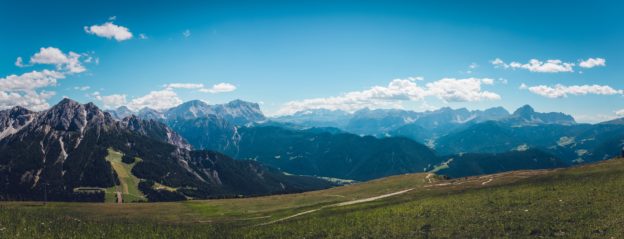Itching to take on an Inspired Adventure but a little concerned about the physical challenge? You’re not alone!
Taking on a physically demanding challenge can be daunting at first, but just imagine the incredible sense of achievement you will feel after conquering your goal for a cause close to your heart.
Before you embark on your nomadic journey, you will need to physically and mentally prepare for what’s to come. Whether you’re climbing the summit of Mount Kilimanjaro, conquering the Kokoda Track or cycling around South East Asia, we’ve rounded up some key training tips to help you transition from the ordinary to the extraordinary with ease.
Physical Preparation
Without a little pre-trip training, or a good basic level of fitness, trekking is hard work. It’s often hard work anyway. The toll for a great trek is paid in sweat. Sore calves and aching quads are your badges of honour. The trade off? Some of the most untouched, pristine and jaw-dropping scenery on the planet. And the best part? The more you train, the easier it is.
- Go For Walks: Push yourself to do long walks. Start small and build up slowly to the actual length you’ll be trekking on the trip. We recommend training until you can walk 4-6 hours comfortably before you leave.
- Cardio Workouts: Basically any leg-based cardio is going to help you prepare. Soccer, football, squash and swimming are all great, but cycling will help build your leg muscles faster. If you’re more of a gym junkie, mix up cycling sets with weighted squats and lunges.
- Train on Different Terrains: Try and mimic the conditions of your trek. If it’s Everest or Kili, you’ll be looking for steep, rocky terrain or loose shale. If it’s Kokoda, try to find muddy paths covered with roots and leaf mould. It’s all about preparing your feet, ankles and knees for the kind on stress they’ll experience on the trip.
- Train With a Backpack: When you’re training, make it challenging by bringing your backpack along. You can fill it with Gatorade and chocolate if you want, as long as there’s a solid weight on your back. If you really want to push it, try loading your pack a little heavier than you’re planning to on the trip – it’ll make the eventual trek feel like a walk in the park.
- Choose the Right Footwear: Invest in a good-quality set of hiking boots, preferably with good water resistance and plenty of support and ventilation. Wear them in the months leading up to the trek. Take them on every training run. It’ll help wear them in and avoid blisters. Pair them with dedicated hiking socks (usually a nylon/wool blend) that will keep out the moisture. Wear two pairs while walking to further reduce the chance of blisters.
Mental Preparation
Every goal we make begins in our heads – as a dream, wish or ambition. We often dream of completing challenges we may not feel confident finishing. The initial fear of failure can sometimes delay the process of turning an achievable dream into a reality. To combat those elements of self-doubt and fear, we must let go of those negative thoughts and feelings wreaking havoc on our dreams. Do not lose sight of the big picture.
- Study Your Itinerary: To manage stress or anxiety in the preparatory phase of your challenge, we recommend doing plenty of research on your destination and challenge. By staying informed and engaged during the months leading up to your challenge, you will see a wealth of benefits for your health and well being.
- Love Yourself: You may encounter a few uphill challenges prior to your adventure (and even during your adventure). During the months leading up to your trip, we encourage you practice some extra self-love. Remember, when things go wrong, don’t be too hard on yourself, take things as they come and learn how to be your own (and greatest) motivator. Meditating is a great way to train your brain. You will not only clear fuzzy thoughts; you will learn about mindfulness and how to better control your emotions.
- Eat Foods for Your Mood: While there is no dietary cure for stress and anxiety, research has revealed that a healthier diet may help improve the physical and psychological health of those suffering from depression/or anxiety and ultimately fight to prevent it. If you’re feeling down, stressed or anxious, why not try improving your eating habits? As the old adage goes, “you are what you eat”! Check out our article here for more tips around eating well for mental health.
- Learn How to Deal With Setbacks: Life can be, for lack of a better word, unpredictable. No matter how well thought-out your training plan is, unexpected events such as weather, illness, family emergences, etc. can cause some roadblocks throughout your physical journey. Before you start your training, it’s important to accept that things may not go perfectly to plan and that that’s okay! If things do go wrong, just keep your overall goal in mind, accept the inevitable and get back on track.
Feeling inspired?
Check out the upcoming adventures on our calendar!


